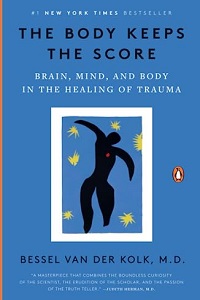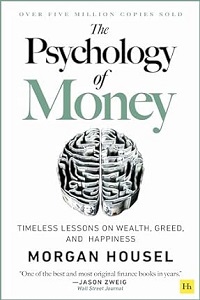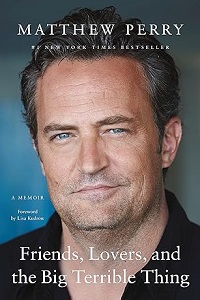| Description |
Categories: Self-Help, Relationships & Lifestyle – Emotional Healing
Year: 2014
Publisher: Penguin.
——————————————–
“The trauma caused by childhood neglect, sexual or domestic abuse and war wreaks havoc in our bodies, says Bessel van der Kolk in The Body Keeps the Score. . . . Van der Kolk draws on thirty years of experience to argue powerfully that trauma is one of the West’s most urgent public health issues. . . . Packed with science and human stories, the book is an intense read. . . . [T]he struggle and resilience of his patients is very moving.”
—Shaoni Bhattacharya, New Scientist
“War zones may be nearer than you think, as the 25 percent of US citizens raised with alcoholic relatives might attest. Psychiatrist Bessel van der Kolk argues, moreover, that severe trauma is ‘encoded in the viscera’ and demands tailored approaches that enable people to experience deep relief from rage and helplessness. In a narrative packed with decades of findings and case studies, he traces the evolution of treatments from the ‘chemical coshes’ of the 1970s to neurofeedback, mindfulness and other nuanced techniques.”
—Nature
“An astonishing amount of information on almost every aspect of trauma experience, research, interventions, and theories is brought together in this book, which . . . has a distinctly holistic feel to it. The title suggests that what will be explored is how the body retains the imprints of trauma. However, it delivers much more than this, delving into how the brain is impacted by overwhelming traumatic events, and is studded with sections on neuroscience which draw on the author’s own numerous studies as well as that of his peers. In addition, it investigates the effects of adverse childhood attachment patterns, child abuse, and chronic and long-term abuse. . . . [T]his book is a veritable goldmine of information.”
—European Journal of Psychotraumatology
“Dr. van der Kolk . . . has written a fascinating and empowering book about trauma and its effects. He uses modern neuroscience to demonstrate that trauma physically affects the brain and the body, causing anxiety, rage, and the inability to concentrate. Victims have problems remembering, trusting, and forming relationships. They have lost control. Although news reports and discussions tend to focus on war veterans, abused children, domestic violence victims, and victims of violent crime suffer as well. Using a combination of traditional therapy techniques and alternative treatments such as EMDR, yoga, neurofeedback, and theater, patients can regain control of their bodies and rewire their brains so that they can rebuild their lives. The author uses case histories to demonstrate the process. He includes a resource list, bibliography, and extensive notes. This accessible book offers hope and inspiration to those who suffer from trauma and those who care for them. It is an outstanding addition to all library collections.
—Medical Library Association, Consumer Connections
|









